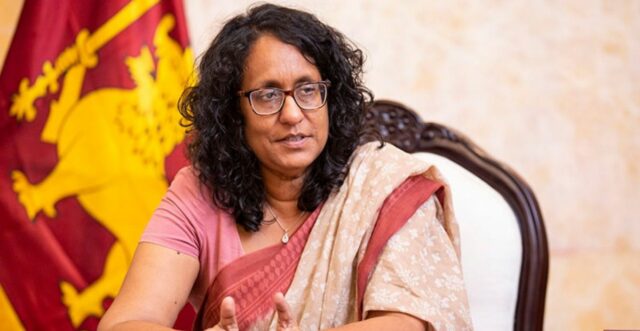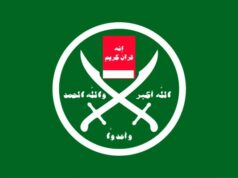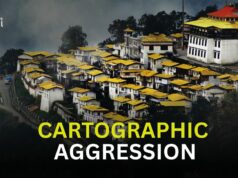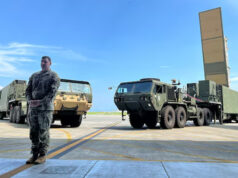Following a paradigm shift in the polity of Sri Lanka, with the Janatha Vimukthi Peramuna (JVP)-led National People’s Power (NPP) securing the presidency of Sri Lanka last week, all eyes are on the new government. While the victory of NPP presidential candidate Anura Kumara Dissanayake is a decisive moment in the island’s history, also making history is academic and activist Dr Harini Amarasuriya, whom the NPP appointed as the Prime Minister for its caretaker government.
The Sunday Morning spoke to Premier Amarasuriya, the third woman PM of Sri Lanka, in an exclusive interview, where she outlined the priorities of the new government.
Amarasuriya told The Sunday Morning that the NPP wanted a disruption-free, smooth transition with a focus on maintaining economic stability while progressing with the International Monetary Fund (IMF) agreement and debt restructuring in accordance with its plan and mandate, expressing confidence that they had begun the change they planned for the island’s political culture, which the party would continue after the general elections.
Following are excerpts from the interview:
Following the historic win of the NPP in the presidential election, how does it feel to take the reins of the government as the third woman Prime Minister of Sri Lanka?
That part of it hasn’t quite sunk in because we had to plunge straight into work, so I am focused on getting on with the job at hand. I am conscious of this historic moment not in terms of what it means for myself personally, but more so that this election was historic and that it marks a turning point in terms of the power balance in our country and shows a transfer of power outside that ‘elite’ circle. In that sense, that historic moment is paramount now and being part of that is an amazing feeling.
I am conscious of the need to deliver because there is so much hope and expectation on what this change means for the country.
What does governance mean to you?
Governance is about building a relationship of trust between those who are being governed and those who govern. I think building that trust and having some kind of social contact is what has essentially been absent in our governance system. Without such, I don’t think we can move forward as a country. Everything else will follow—be it addressing corruption or improving efficiency, etc.
What is the NPP’s governance plan in the short and medium term?
As you know, there has already been an election (General) declared. So, in this brief period what we are trying to do is to signal and solidify the shift we want to make in governance and the political culture. A shift where governance becomes more accessible, more publicly responsible, not wasteful, not extravagant. So we will be setting those changes in place and making sure there is stability and consistency in terms of what happens over the next few weeks, so that people feel reassured by this change, because this kind of deep transformation can also be scary. We want to make sure that people feel at ease.
We really appreciate the way the transition happened. This has been an extremely peaceful election; no lives were lost. Post-election violence was zero. We are happy with that as even in our (NPP) meetings we asked our members not to even light a cracker. I think we have also established a change by showing that you don’t have to be triumphalist at such moments.
The former President and his team really facilitated a smooth transition; there was no drama about it. We really appreciate that.
While this is a caretaker government, in terms of a governance plan, what about the long term?
Long-term, economic stability. Economic issues are the priority. We are talking with the IMF and will continue to do so on how to manage this transition and we will continue engaging with the IMF on how to move forward with the negotiations because, as we said during our campaign, there are certain aspects we want to discuss further, based on our mandate. Then, there is the debt-restructuring process, which must continue.
Bringing immediate relief to people is important, especially in terms of health, education, and social welfare. We must also address food security. Then we must get this economy going, we must come out of this recession. All of this must be done in parallel. Along with that, we want to pursue the governance changes we want to do. We must put the changes in place and systems must be introduced. We have been telling public officials at every meeting that the role of the politicians and the role of the officials need to be kept demarcated and each one needs to play their role.
Can you explain the top short-term priorities of the caretaker government?
For the government, stability, changes to governance and to political culture and getting the required systems in place. That is what we may mostly be able to do within six weeks.
Now that you are in government, have you taken stock of the economic situation of Sri Lanka today? Where do we stand as a country in the recovery process?
In terms of the recovery process, the biggest issue we have now is the recession and the impact it has on the people. Coupled with austerity, the impact on the people has been significant. We have to get out of this cycle and we must ensure that the debt-restructuring process continues. We don’t know the specificities of what has been discussed, so we will work on that.
How do you plan to balance the pledges given on campaign platforms, which have given hope to the people, with the governance realities?
We were very careful that we didn’t make the kind of promises that we couldn’t keep. Even when we made plans to provide relief, we looked at how much it would cost and where we could recover the cost. These are not unconnected to our long-term plans or overall strategy also. When we talk about reducing VAT, it is not only about giving relief to the people. We have done the calculations and made plans. Once the election is done, we will come up with a vote-on-account and go ahead with our plan.
There have already been allegations regarding new appointments, where some officials who were part of the Gotabaya Rajapaksa Government and some who were with the Ranil Wickremesinghe Government have been re-appointed. How would you respond to such allegations?
There were two things we were considering. We didn’t want to come and change everything within 24 hours and we don’t want to make changes for the sake of making them. There are concerns about some appointments; some adjustments will be made in the coming days. Now that we have made appointments, we are responsible for anything that goes on during our watch, so we take responsibility for that. Now, these appointments which have been made will have to toe the line of this government.
I think because there was so much anger from the public towards both previous administrations, people may not have made the distinction between the political authority and the officials. Our policy is that yes, some officials are complicit and can no longer be tolerated. However, most officials are not the people who were primarily responsible for poor governance. We hold the political authority to account. Also, if there are people we can work with to bring the change which is needed, we don’t need to throw them out. Don’t want the change we bring to be like a political witch-hunt, which was characteristic of previous changes in government.
What is the government’s game plan to continue Sri Lanka’s dialogue with the IMF on the Extended Fund Facility (EFF) agreement? Will the caretaker government move to renegotiate any particular area?
We have already had a conversation with them. An IMF delegation will come to Sri Lanka next week or early October, so our conversation will continue. There are also plans for a delegation from Colombo to visit the IMF headquarters. In our conversation so far, the IMF has been helpful and has facilitated our concerns. For us, it is not only about the IMF and the loan; also need to look at the political context and set up the government. We have discussed this with them.
As we have been saying, we are planning to negotiate on social protection and governance issues. Also, we are looking at the broader parameters in terms also of the NPP’s economic plans for growth, making sure that the IMF plan is not a barrier to our plan. I am confident we can do this negotiation.
When do you think the third tranche of the IMF programme will come?
That is something we are discussing; we want to make sure that it is not delayed.
The NPP has signalled a revisit of the debt-restructuring agreement, which was reached by the previous government, and perhaps a different approach on the International Sovereign Bonds (ISBs). Will that happen soon? And if yes, what will the NPP do differently?
The main issue is that none of us knows what exactly the agreement is. We want what is best for the country, so for that we need to know the details of the agreement. Need to know the specificities of the agreement and based on that we will try to get what is best for the country. If we feel that what has been reached now is not in our country’s best interests, we will have to talk about it.
I also think that one issue with the previous government’s approaches as far as we could see was that it left negotiations to the advisors; there was no clarity whatsoever. There was minimal engagement by the government. That’s where we will change the approach. We also have an agenda that we put forward and a mandate for it, so the advisors need to know and they have to represent us. There is an agenda we can put forward and say ‘these are our terms’.
How will the NPP Government roll out its anti-corruption agenda? What is the timeline?
We will keep it going and are planning an investigative unit, led by the President. The plan is to set it up soon. Some of the cases we have raised in the past and ones which have come up recently will be investigated.
Just as importantly, we want to ensure that we curb corruption at present and steadfastly ensure that current laws on anti-corruption will be implemented. Other changes can follow. We will also move to establish systems which will make corruption difficult and give the political leadership to ensure the change in culture that will shun corruption.
Will Sri Lanka continue its foreign policy stance? Does the NPP plan to make any changes to foreign policy in the near future?
Like with the IMF, we will work with our international partners and other countries based on our own agenda. Sri Lanka have strategic interests, which we will work towards. We want to maintain the ‘open and friendship with all’ policy of Sri Lanka, conscious of our regional responsibilities and sensitivities. Sri Lanka does not want to be caught in a battle between global powers.
Child malnutrition is a serious concern given the impact of the economic crisis during the last two years. What do you plan to do about it?
This is a serious concern. Food security comes under my purview. This is something we are working on. I have met with the ministries of Education and Trade to improve nutritional support for children. I am also in dialogue with the Health Ministry, which is also under my purview, regarding looking at what we need to do to address this. We are working to strengthen primary healthcare. This is in line with our policy on strengthening family healthcare in Sri Lanka. I want to emphasise the nutrition aspect of that process.
Will the NPP move to introduce a new constitution when the new Parliament is called?
Yes, it will be one which comes following wide stakeholder consultation and it will be through a referendum.
(By arrangement with The Sunday Morning)





